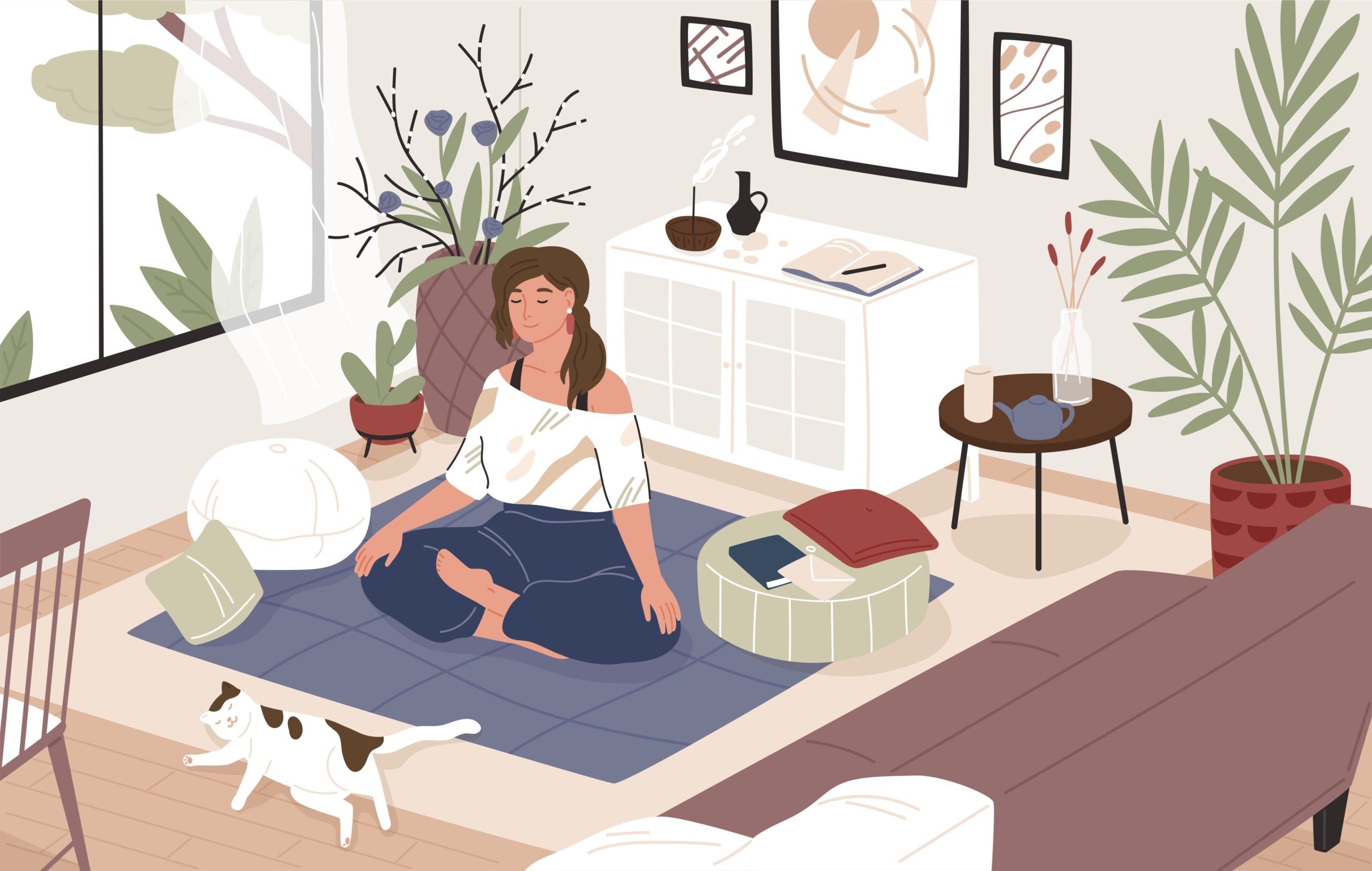Anxiety is a natural response to stress, keeping us alert and safe.
However, when it becomes out of control it can start impacting and controlling the quality of our lives.
Being aware and utilising these seven diet and lifestyle strategies can help support healthy levels of anxiety having you feel calmer and more in control.
Breathe
I know, you already are… But for many of us, we are stuck in a stressed breathing pattern, that’s actually associated with running a marathon, which for most of us is just a reflection of how we live our lives.
By changing the way we breathe we are able to tap into our nervous system and tell our bodies that we are safe, which helps reduce anxiety.
Focus on breathing into your stomach (diaphragmatic breathing), inhale for four seconds, hold for four seconds, exhale for four seconds, hold for four seconds and repeat.
Mindfulness
Mindfulness is being aware of the experience that you are currently having.
Meditation is a tool that can increase mindfulness.
Research shows that both mindfulness and meditation can be very useful for persons suffering from anxiety.
There are now some wonderful app’s to assist with both mindfulness and meditation, I’d recommend downloading an app like Insight Timer and finding a practice that feels good to you.
Make friends with decaf
Your morning coffee could be contributing to your anxiety.
In one study looking at caffeine consumption in persons diagnosed with various anxiety disorders; the researchers found they could induce a panic attack in a large percentage of the participants just by giving them the equivalent of two and a half coffees.
It makes sense really as caffeine artificially raises our main stress/daytime hormone, cortisol.
And if anxiety is a natural response to stress, more caffeine equals more stress equals more anxiety.
Swap out the regular coffee for decaf coffee or turmeric lattes.
Relax
After work drinks make you feel good, but what about tomorrow?
When it comes to alcohol and anxiety, we have to be careful!
Often drinking alcohol will reduce anxiety… Until tomorrow, when it rebounds higher.
We can then get into a feed-forward mechanism of self-medicating with alcohol as a strategy to reduce our anxiety.
Relaxing is important for anxiety and so finding ways to relax without the use of alcohol can be really beneficial.
Look after your gut!
You might have heard of the gut/brain axis.
Research is now pouring out on the impact and importance of gut health not only for physical health but also for mental health, as the brain and the gut is a two-way highway of information both affecting each other equally.
The research on gut health and anxiety is focused on specific species of beneficial bacteria that predominantly reside within our large intestine.
Look for a probiotic that contains lactobacillus helveticus and lactobacillus rhamnosus to support your anxiety via your gut.
Support your body with micronutrients.
There’s a number of key micronutrients like zinc, magnesium and vitamin C which the research shows to be supportive of anxiety.
However, when it comes to mental health in general, the research is clear, micronutrients taken in a high strength multiform is significantly beneficial.
So while taking individual nutrients is beneficial, I’d recommend making sure you get everything you need by taking the highest quality multivitamin you can find.
Use herbs to feel calm and in control
Go to the Islands and have some Kava.
Kava is fast becoming one of the most researched herbs for anxiety.
Fortunately, you don’t have to go to Fiji to get these days but look for a product that has kava extracts standardised to 70 per cent kavalactones as most clinical research shows that specific kava extracts standardized to 70 per cent kavalactones are superior to placebo for relieving symptoms of non-psychotic anxiety.
Another well-researched herb is passionflower, look for a product that contains concentrated passionflower at least a 3:1 ratio and 400 mg per serve.





